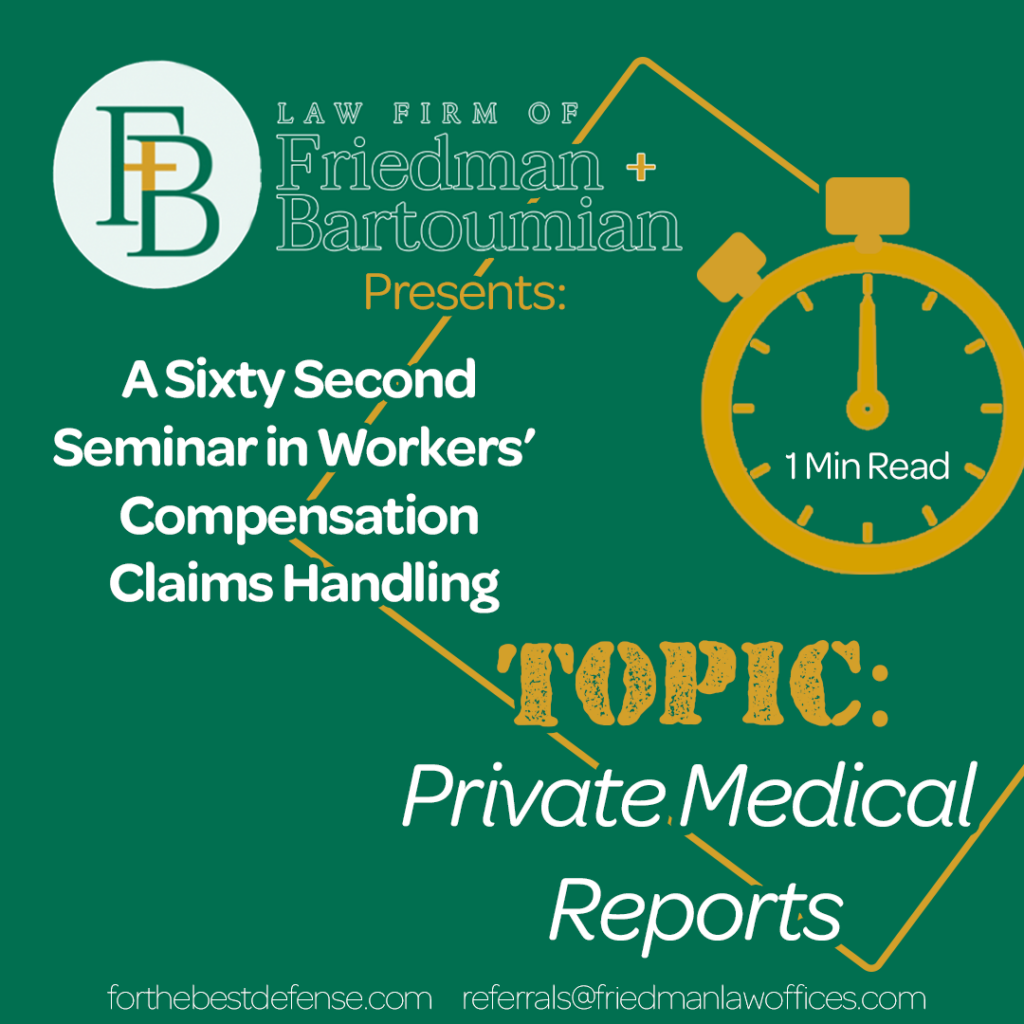
The intent of today’s blog is to offer guidance on what employers may do when applicant attorney requests a QME panel in a questionable medical specialty for a denied claim.
It is not a revelation that workers who lack private health insurance but need medical care will file a claim for workers’ compensation benefits even though their injury or illness was not industrially caused. In furtherance of that effort, and to obtain a medical opinion which establishes the compensability of the claimed injury, such workers and/or their attorneys may request a Qualified Medical Examination in an inappropriate medical specialty, avoiding the likelihood that an appropriate specialist would never find the claimed injury to be work-related. For example, the attorney may intentionally avoid a pulmonology panel to address an alleged respiratory injury, instead seeking an evaluation by a chiropractor. When such a situation occurs, some employers opt to quickly solicit a private opinion from an appropriately qualified physician. The private physician will review the medical file and thereafter, issue an opinion, usually favorable to the employer; however, as this is a private report, the employer cannot insist that it be considered by the inappropriate QME, or submitted into evidence at the Workers’ Compensation Appeals Board. The question then becomes, “What does an employer do with a highly favorable private report of non-compensability?” Allow us to suggest a course of action:
Provide the report to the worker’s primary care physician. Accompany it with a separate letter stating: “This report pertains to your patient, John Doe.” That’s all that needs to be written, and adding anything to that exposes the employer to a claim of inappropriately “influencing” the primary care physician. Upon receipt of the private report, a vast majority of physicians will automatically insert it into the patient’s medical file without being prompted.
Medical records play a key role in assisting the QME in determining compensability. The QME is to review and comment on each record contained in a subpoenaed medical file. Therein will be a copy of the highly favorable private report which will assist the QME in rendering a compensability decision. Either party may subpoena and serve records on the QME, but neither may redact any documents. Removal of any record will be viewed as suppression of evidence against the party committing the offense.
By quickly obtaining a private opinion and sending the report to the primary care physician, that report will most likely become part of the provider’s medical file. Once subpoenaed, all records in the provider’s file, including the private medical report, will be served upon, and examined by the QME. As a bonus, the subpoenaed records are now admissible at the WCAB!

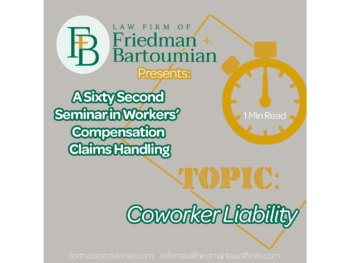


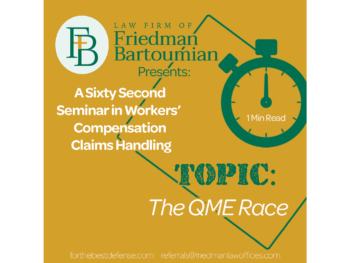
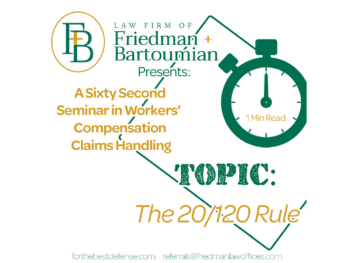


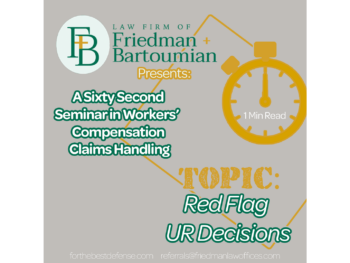
 Safety Awards: A Sixty-Second Seminar in Workers’ Compensation Claims Handling
Safety Awards: A Sixty-Second Seminar in Workers’ Compensation Claims Handling
Leave a Reply